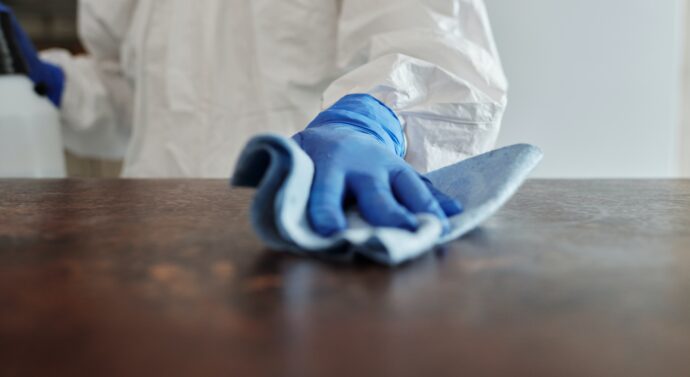
Mold on campus: How to ensure your student housing is safe
Uncategorized November 1, 2021, Comments Off 141College housing is guaranteed to come with a few problems, whether it be a heavy price tag, a far walk from classes or maybe obnoxious roommates. These are all a typical and expected part of the experience of living on campus. What are not expected, however, are possible health hazards.
There have been several complaints around Drury University’s campus about suspected mold being found in on-campus housing. According to the Environmental Protection Agency (EPA), the health effects of mold in indoor housing can range from very mild to severe, depending on the type of mold and the individual inhaling it. For example, someone without allergies or a respiratory condition would not be as severely affected as someone with asthma or a severe mold allergy. Overall, inhaling mold can be detrimental to human health and should be avoided.
So, what should you do if you find mold in your on-campus housing? Dr. Tijuana Julian, Dean of Students, has answers for you.
“We ask that students submit a work order for our facilities team as soon as they notice any issue in their residence, including mold,” Dr. Julian said. “Someone from their team will inspect the issue and determine remediation steps.”
Julian also explained what those remediation steps are, saying, “Mild cases, such as mildew spots on vents, shower curtains, and along window edges will likely be remediated by our facilities staff. We will most likely call in a contractor to assess the situation and assist in remediation if the issue appears more severe, such as mold or mildew found on the walls, floors, under cabinets or on ceilings. If we ever suspect any issue may be black mold, we will partner with a qualified contractor to properly remediate and clean the area, replacing anything that is needed.”
This year, there have been cases in which these steps have had to be taken. One such case was in the Sigma Pi fraternity house.
Austin Lemons, a Drury junior and member of Sigma Pi, explained the extent of the mold damage caused by a leaky air conditioning unit in the house.
“The mold had covered the mattress,” Lemons said, “with mold of all shades growing up and away from the walls. The floor was covered in damp drywall from the ceiling and yet more mold throughout. The smell found its way down the entire hall.
“Our bathrooms were also molded,” Lemons continued. “Apparently moldy enough to call in a painting crew to remove the mold and use a sealing paint.”
Drury heard Sigma Pi’s complaint and took care of the issue, bringing in a construction crew to tear down damaged drywall and replace the draining system of the culpable air conditioning unit. However, while the fraternity men at Sigma Pi were able to have their complaints addressed, some students had a harder time working their way through the university’s housing complaint system.
Shortly after moving in, freshman Hailey Brown discovered what she and roomates thought was mold growing in the vents of her room in Wallace Hall. On Sept. 24 she put in a work order through the proper channel and someone was sent by the university to investigate.
Brown claims, however, that the vents were never actually opened during the inspection and that no action was taken to test the vents for mold or to clean them. Instead, the father of one of Brown’s roommates decided to clean and replace the vent covers himself.
So, while getting housing issues handled may be easy for some, the same cannot be said for everyone on campus. One reason for a delay in the resolving of housing complaints may be due to the current lack of workers in the facilities department.
Dean Julian had this to say on the matter: “Our facilities team has brought in third party contractors to help address any complaints that arise around campus. We are prioritizing issues in student housing. We often see urgent issues that may create some response delays for more standard issues.
She continues, “However, we are making progress toward quicker response and completion times. We are actively interviewing for open positions and are optimistic that we will soon be more fully staffed on the facilities team.”
If you have an issue with your housing whether it be mold, damage, pests or otherwise, be sure to put in a work order. Even though Facilities may be currently understaffed, the university has acknowledged the issue and is actively working to address it to ensure the safety of students. However, if you feel that your needs are not being met by the university, do not be afraid to advocate for yourself and your well-being.
Article by Sammie Ellis